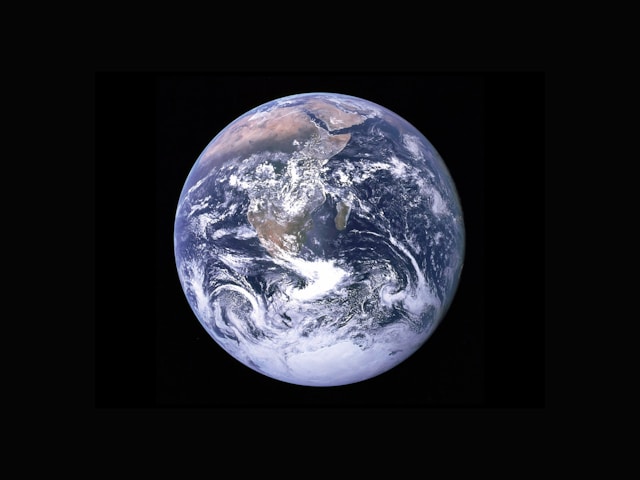New findings from Gabon indicate that complex life could have existed 2.1 billion years ago, challenging conventional timelines and sparking debate among scientists
Recent research in Gabon has ignited a scientific debate by suggesting that complex life on Earth may have begun up to 1.5 billion years earlier than previously believed. A team of international scientists, led by Professor Ernest Chi Fru from Cardiff University, has uncovered evidence indicating that complex life forms could have existed 2.1 billion years ago. This theory diverges significantly from the widely accepted notion that animal life started around 635 million years ago.
The research centres around the Francevillian formation in Gabon, an area known for its enigmatic formations. The team analyzed sediment cores drilled from the rocks and discovered evidence of high levels of nutrients such as oxygen and phosphorus. According to their findings, these nutrients created an environment conducive to the early forms of life.
Embed from Getty ImagesProfessor Chi Fru and his colleagues believe that these nutrients were the result of volcanic activity triggered by the collision of two continental plates underwater. This geological activity isolated a section of water from the ocean, creating a shallow, nutrient-rich inland sea. The resulting environment was rich in oxygen and other elements necessary for photosynthesis, which could have supported primitive, complex life forms.
“We’re suggesting that the fossils we found, which resemble simple animal-like life forms, were able to thrive in this isolated, nutrient-rich environment,” Professor Chi Fru told BBC News. He compares these early life forms to modern slime moulds—single-cell organisms that reproduce with spores and exhibit simple behaviours.
The theory posits that the high levels of oxygen in the water would have promoted larger body sizes and more complex behaviours in these primitive organisms. However, the isolated nature of this inland sea eventually led to the extinction of these life forms due to a lack of new nutrients.
The findings are not without controversy. Professor Graham Shields from University College London, who was not involved in the research, expressed scepticism. “While the idea of higher nutrient levels 2.1 billion years ago is intriguing, I’m not convinced that this would have led to the diversification of complex life,” he said, calling for more substantial evidence to support these claims.
The initial suggestion that complex life could have begun earlier than previously thought emerged about a decade ago with the discovery of the Francevillian formation. The team’s latest research adds weight to this hypothesis by demonstrating that rock chemistry indicates an environment rich in nutrients just before the fossils appeared.
PhD student Elias Rugen from the Natural History Museum, who was not part of the research, acknowledged the significance of the findings. He stated, “It’s evident that oceanic carbon, nitrogen, iron, and phosphorus cycles were behaving unusually during this period. While there is no definitive proof yet that complex life thrived 2 billion years ago, the idea remains plausible.”
The research provides new insights into the early development of life on Earth and challenges long-held assumptions about the timeline of complex life. As scientists continue to investigate, the debate over the origins and evolution of early life forms will undoubtedly continue.
Analysis:
Political:
The implications of this research could extend beyond the scientific community and influence policy and funding for further studies. If the findings are validated, they could shift the current understanding of Earth’s history, potentially affecting educational curricula and historical scientific research. Governments and funding bodies might prioritize exploration and study of early life forms, leading to increased support for paleobiological research.
Social:
This discovery challenges conventional narratives about the history of life on Earth, prompting a re-evaluation of our understanding of biological evolution. The idea that complex life could have existed much earlier than previously thought may lead to public discussions and educational efforts to update our knowledge of human origins and evolutionary history. This could also influence popular science media and public interest in paleontology and early life studies.
Racial:
The implications of this research might not directly intersect with racial issues, but it could impact global scientific collaboration and funding distribution. Increased attention to early life studies might provide opportunities for researchers from diverse backgrounds to contribute to groundbreaking discoveries, thereby promoting inclusivity in scientific research and collaboration.
Gender:
The debate surrounding this research could highlight the role of gender in scientific inquiry and recognition. As more women and underrepresented groups become involved in scientific research, there is potential for a more diverse range of perspectives and approaches to emerge. This could influence how new theories and discoveries are evaluated and accepted within the scientific community.
Economic:
The economic impact of these findings could be significant, particularly in terms of research funding and exploration. Validating the theory that complex life existed 2.1 billion years ago might lead to increased investment in geological and paleobiological research. Additionally, the development of new technologies and methodologies for studying ancient life could drive economic growth in related industries.
